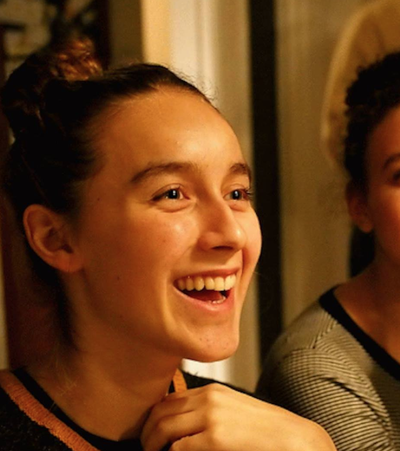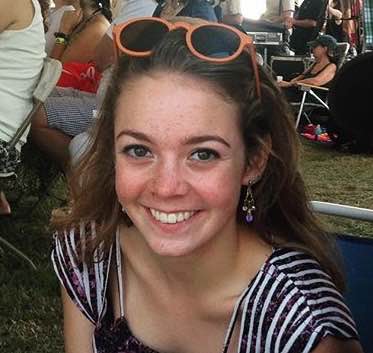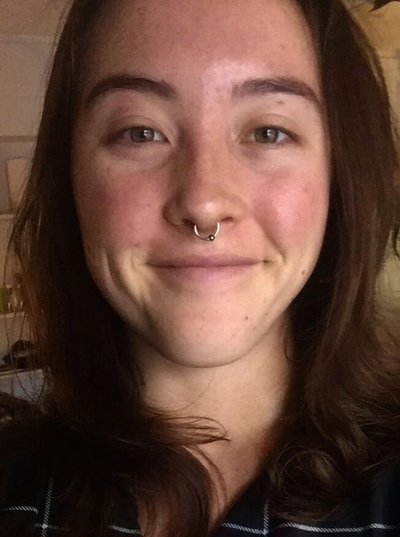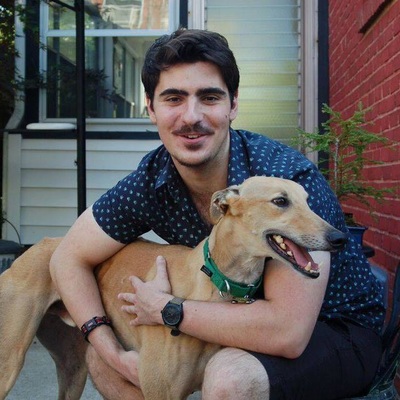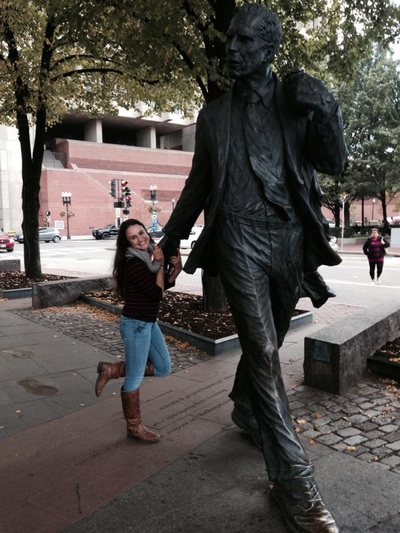The Peer Mental Health Advocates are trained students with lived experience of mental illness & disability committed to supporting their fellow students navigate the process of self-advocacy. PMHAs provide peer counseling + advocacy services, connect students to resources both on and off campus, offer emotional/social support, and offer accurate information regarding mental health, illness, and healing. PMHAs meet with their peers on a weekly basis, allowing them to form different individual partnerships and provide personalized care.
PMHAs will not provide mental health care that is outside of their training, and will not fill the role of therapists-- peer support is a different type of health care entirely, that is especially helpful for folks with oppressed identities & stigmatized illnesses.
PMHAs will not provide mental health care that is outside of their training, and will not fill the role of therapists-- peer support is a different type of health care entirely, that is especially helpful for folks with oppressed identities & stigmatized illnesses.
Click here to request a PMHA
Click here to refer a student to a PMHA
What do PMHAs do?
Examples of PMHA Responsibilities:
Our Core Values:
PMHAs are dedicated to:
- Create a personalized safety/relapse prevention plan
- Build a consistent, trusting partnership
- Send reminders about medication and appointments
- Help to identify individual strengths, and suggest appropriate coping mechanisms based on those strengths
- Connect peers to clinical care, alternative approaches to treatment, and various community resources
- Assist peers in their navigation of the healthcare system
- Answer questions about mental illness with information from relevant scientific sources (with the intention of reducing internalized stigma and associated judgement)
- Provide support in times of struggle and crisis
- Suggest realistic approaches to recovery management
- Acknowledge the impact that symptoms and ineffective treatment can have on peers’ personal relationships, and provide resources and connections to help lessen the severity of that impact
- Expose peers to methods of advocacy that consciously prioritize self/community-care
Our Core Values:
PMHAs are dedicated to:
- Affirming student individuality by helping peers to identify and attain their personal, self-determined treatment plan
- Supporting students’ adaptive management of their mental health, not just preventative treatment
- Providing peers with ample, accurate information about multiple relevant treatment methods
- Using a collaborative, community-based approach to treatment (as opposed to a more generic, prescriptive approach)
- Maintaining a reciprocal relationship with peers, while consciously striving to break down any potential power dynamics
- Reducing the harmful effects of emotions rooted in the internalization of stigma-- like guilt or self-doubt-- that may arise when students seek accommodations for mental health conditions
- Introducing and promoting the usage of many different coping mechanisms
- Establishing greater connectivity within the community of students who are living with mental illness
What kinds of lived experience do PMHAs have?
PMHAs have a wide diversity of lived experience: Mood Disorders, Anxiety Disorders, Eating Disorders, Personality Disorders, Suicide, General Mental Health, Recovery & Healing, Outside Referrals, Bipolar Disorder, Psychosis, Schizophrenia, and OCD.
Outside of one-on-one counseling, what else do PMHAs do?
In addition, Peer Mental Health Advocates help create resources on their own area of lived experience, lead educational workshops, facilitate discussion groups, panels, etc. + are hold open hours or volunteer in the Nightly Room.
PMHAs have a wide diversity of lived experience: Mood Disorders, Anxiety Disorders, Eating Disorders, Personality Disorders, Suicide, General Mental Health, Recovery & Healing, Outside Referrals, Bipolar Disorder, Psychosis, Schizophrenia, and OCD.
Outside of one-on-one counseling, what else do PMHAs do?
In addition, Peer Mental Health Advocates help create resources on their own area of lived experience, lead educational workshops, facilitate discussion groups, panels, etc. + are hold open hours or volunteer in the Nightly Room.
All students are trained through Project LETS, Inc. Project LETS, Inc. is certifed by The Depression and Bipolar Alliance (http://www.dbsalliance.org/) + The International Association of Peer Specialists (http://inaops.org/). In addition, Project LETS, Inc. is a recognized organization in the Global Network of Peer Support Organization under Peers For Progress (http://peersforprogress.org/). Attached is a document called "Global Evidence for Peer Support: Humanizing Health Care.”




